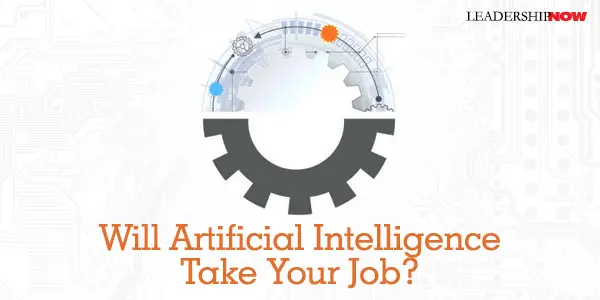 |
 |
04.03.19

Will Artificial Intelligence Take Your Job?
A PEW RESEARCH CENTER study found that Americans are roughly twice as likely to express worry (72%) than enthusiasm about a future in which robots and computers are capable of doing many jobs that are currently done by humans. Of course, people have always worried that technology would take over their job. Gutenberg’s press probably created more social upheaval than any technological advancement has yet to do today. The sixteen-century Vicar of Croydon warned, “We must root out printing or printing will root us out.” A dire situation indeed. The term artificial intelligence first appeared in an article by Stanford professor John McCarthy in 1979. Ever since, artificial intelligence or cognitive technologies as it is often referred to, have been slowly developing in capability and application. Thomas Davenport states in The AI Advantage that, “AI is a largely analytical technology, and that for most organizations working with AI is a straightforward extension of what they do with data and analytics.” He notes: Artificial Intelligence isn’t going to transform the work of organizations—or the lives of individuals—as fast as many people seem to expect. It will be one of the many technologies that comply with Amara’s Law (named after the scientist and futurist Roy Amara): While the estimates vary between 5 and 47 percent of jobs to be lost to automation, Davenport believes it will be much closer to 5 percent. What he sees happening is something quite different. Rather than large-scale automation, he believes we will see large-scale augmentation or “smart humans working in collaboration with smart machines.” Why? A few of the reasons he gives are: First, AI tends to support or automate tasks, not entire jobs. Second, most managers neither want nor expect large-scale automation. We have seen chatbots and cognitive-engagement apps in customer service and sales, but they are not taking away jobs. Rather they are allowing these functions to handle more without adding staff. “Some organizations are planning to transition customer-support personnel to more complex activities that bots can’t yet do including handling customer issues that escalate, conducting extended unstructured dialogues, or reaching out to the customer before they can call in with problems.” Third, massive automation will not take place based on our experience from previous generations of technology. For example, there are about the same number of bank tellers despite the introduction of ATMs and internet home banking technologies. Fourth, what we see are new roles and skills emerging as people find new jobs and tasks to perform when previous tasks are taken over by automation. Finally, a lot of entirely new jobs will be created. “New jobs created by AI will fall into three categories: trainers, explainers, and sustainers.” What Can We Do? Broadly speaking there some skills that will be valuable in the workforce to collaborate and maximize your value. Being Conversant with How Machines Think “Knowing the logic and flow of a computer system is important for anyone who works alongside or oversees smart machines. Acquaintance with how systems think can be helpful in troubleshooting, understanding limitations, and explaining the operation of cognitive technologies.” Having an Understanding of Analytics and Data Structures “Understanding statistics, data structures, and how to make decisions from them will be of help to anyone seeking to work with AI.” Becoming Familiar with Different Types of AI Especially for those who seek managerial roles, this knowledge is essential. “It is impossible for someone to sponsor and implement a project involving image recognition, for example, if they don’t know that deep learning is the most likely method to doing a good job of it.” Having Domain Knowledge of the Business and Industry “Anyone who wants to work alongside smart machines in a business will need to understand not only the machines themselves, but also the aspects of the business to which they are applied.” Possessing A Strong Ability to Communicate This skill cannot be stressed enough. “As machines take on more decisions and actions, one of the key tasks left for human workers is effectively communicating the outcomes of machine activities to other humans.” Having High Levels of Emotional Intelligence Computer systems don’t possess much in the way of emotional intelligence. “That means humans have a competitive advantage in the workplace if they are perceptive, sensitive, and insightful about human emotions.” To maintain your advantage, you need to always be learning too. Curiosity wards off defensiveness and keeps you ahead of the curve. So always be learning. Davenport has written an interesting book and covers other aspects of the cognitive technologies such as cognitive strategy, and managing the organizational, social, and ethical implications of AI. AI is really nothing more than the manipulation of data. Understanding the questions to ask, how to put it together, and interpreting what it means, will be critical functions in the future. Instead of pushing data, the need will be for those who can pull intelligence from it. 
Posted by Michael McKinney at 07:49 AM
|
BUILD YOUR KNOWLEDGE
 

How to Do Your Start-Up Right STRAIGHT TALK FOR START-UPS 
Grow Your Leadership Skills NEW AND UPCOMING LEADERSHIP BOOKS 
Leadership Minute BITE-SIZE CONCEPTS YOU CAN CHEW ON 
Classic Leadership Books BOOKS TO READ BEFORE YOU LEAD |